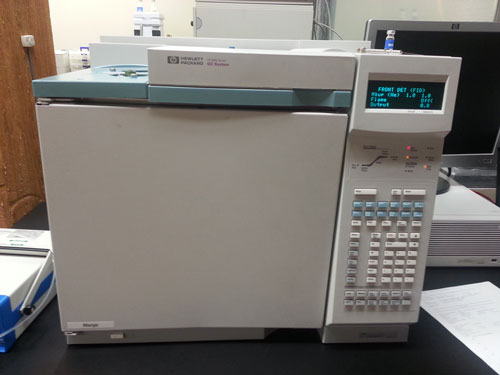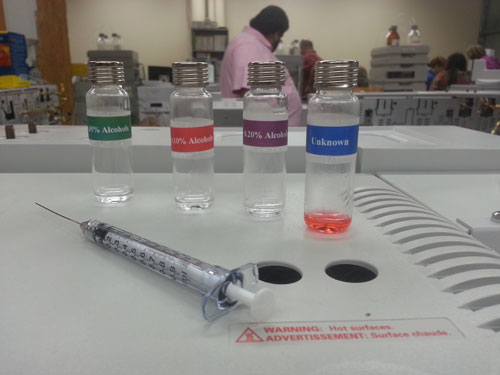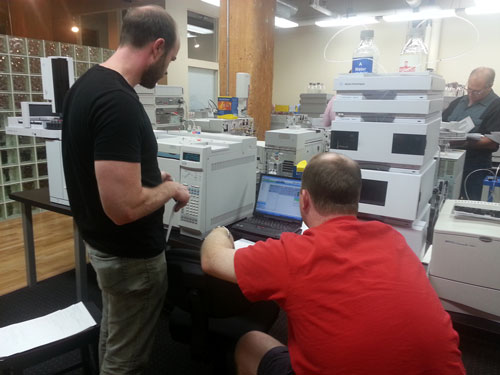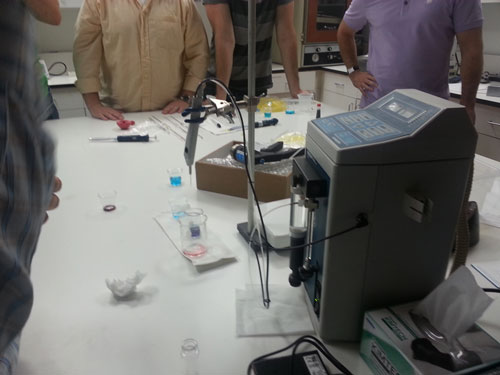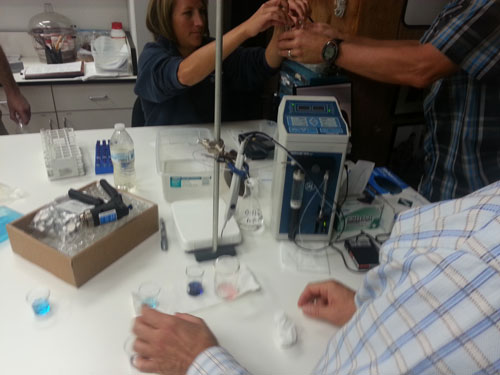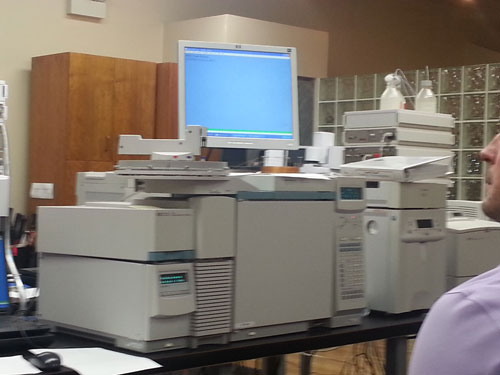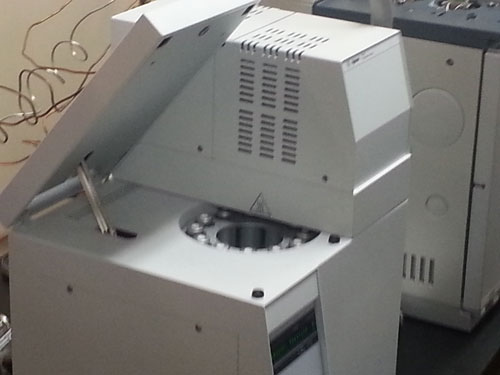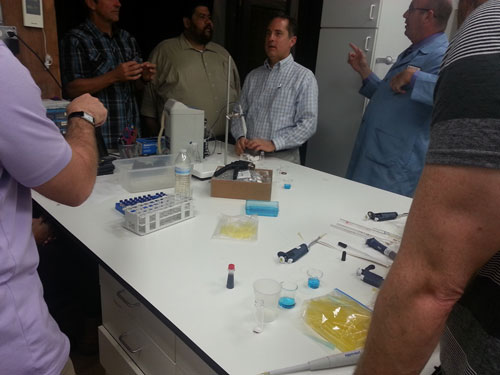Certified DWI/OUI Specialist Attorney Michael Bowser discusses the laws regarding drunk driving in Massachusetts and New Hampshire, as well as how to decline field sobriety testing and why you should consider doing so.
Teddy Panos: Joining us right now to talk a little bit about a number of great things that are happening with his business, his practice, is a member of our expert network, attorney Michael Bowser. Good morning Counselor, how are you?
Mike Bowser: Good morning Teddy, doing well. How are you?
New Legal Associates
Teddy: I’m doing fantastic. You’re a busy man, you just opened up a new office.
Mike: We did. We relocated the Chelmsford office over to 2 Courthouse Lane, which is right off at Drum Hill. We’re fortunate enough to have purchased a condo, did a build out so it’s a brand spanking new shiny office and we’re very happy over there.
Teddy: That makes the staff happy. The employees love something new, a new room, a whole new building, a facility, it makes going to work fun, doesn’t it?
Mike: It does. A little bit of a growing period because we went from literally, a much larger space to a smaller space, not quite as much elbow room, but it’s good every 12 years or so to empty out some of the junk that you accumulate over the course of the decade or so.
Teddy: You’ve also hired a couple of new associates as well, tells me your business is expanding, my friend.
Mike: I am very fortunate to have two lovely young ladies working for me. They’re basically sharing a position. Each of them has children at home. One has twins at home that will be two in September. Amy Manchester just joined me, she is a recent admittee to the New Hampshire bar, she’s admitted in the Massachusetts, and she worked as a public defender in Colorado for two years. Her husband is an Army captain and his deployments and his assignments brought him back to New England, so she’s just back.
She graduated from the Franklin Pierce Law Center, where I went to school now known as the UNH Law Center. And then the other associate is a young woman, Kristen McLaughlin, and she’s working a couple days a week. She’s a former public defender in Florida, graduated at BU, went to law school in Florida, and she did some really “heavy lifting” as they say, doing a lot of felony trial work down in Florida. Her husband is from the area and that brought her back here. I’m very lucky to have two great lawyers working with me.
Teddy: You mentioned one of them up in New Hampshire, you have a Nashua office as well. We’ve talked with you, you’re one of the handful of certified OUI specialists in the area here, actually in the entire country. For that matter, it is a specialty, what you do. Is that the majority of the cases that you handle?
Mike: I’ve always maintained. The civil side of my practice has always been personal injury litigation and then the other half of my practice and I’d say actually, the other 75% of my practice is Criminal Defense. But 90% of that is drunk driving defense between the two states – between Massachusetts and New Hampshire.
New Hampshire Drunk Driving Offenses
Teddy: The popular belief is that the police in New Hampshire are much stricter on those types of offenses. They really try to crack down. Is that accurate?
Mike: No. Actually quite frankly, the level over the last 10 years or so, it seems to be rising in both states. It’s always been an offense that’s prosecuted and they pursue it pretty vigorously in New Hampshire. They seem to be doing the same here in Massachusetts. There certainly has not been a drop-off in the level of arrests in New Hampshire. I think sometimes in some of the smaller rural communities, they’re limited in the number of police officers they have on the road, but they’re also limited in number of people running around at night.
Teddy: That don’t have anything else to do. Right?
Mike: If you’re out late in New Hampshire and they’re around, they’re certainly looking for those types of offenses, so it’s in force. It seems to be in the urban settings in the Lawrence, the Lowell, the Boston [areas]. In the urban settings, it’s really left – in my opinion – to the state police do most of the enforcement on the major highways and most of the municipal officers are tied down doing other types of work. And also, there’s public transportation, there’s more people walking as opposed to driving in those urban centers.
Teddy: The popular belief is that the smaller the town, the more likely you’re going to get pulled over for something. A moving violation that might turn into, “Okay, hey we want you to take a sobriety test here.” But are there not any numbers that back that up?
Obeying the Laws of the Road
Mike: Almost every, not every, but a fairly significant number of OUI, DUI, DWI arrests, were initiated by minor traffic violations, equipment violations. There’s a tail light out, the classic in Nashua, in New Hampshire, is somebody on Main Street because I see this all the time. Main Street is populated by a number of restaurants, bars, and places that people like to congregate and have a good time. If you make the mistake of getting in your car and you forget to turn on your headlights because it’s a well-lit area . . ..
Teddy: I do it all the time.
Mike: Half a dozen cases that have originated on Main Street in Nashua, where the driver has just forgotten to turn on their headlights and that’s what leads to the stop, and then the stop leads to the request for a field sobriety testing. That’s how they all begin.
Teddy: I often joked about, there’s an unwritten crime on the books in New Hampshire. I used to date a girl in Nashua and every night driving back home to Dracut, I’d get an escort from through Hudson until I hit the Tyngsboro line. I used to call it DWMP, driving with Massachusetts plates.
Mike: I’ve cautioned folks about the same thing, driving in New Hampshire after midnight with a Mass plate. Actually, by Hudson was notorious. Their enforcement has always been pretty strong and they definitely look at Lowell road, coming down past McDonalds and Walmart.
Teddy: That’s where I was going to.
Mike: Yes, and they will. I’ve had cases there where they followed cars literally for a mile or two waiting for that marked lanes violation, waiting for that minor deviation, and that’s what initiates the traffic stop.
Teddy: And the lesson there really is, look, whenever you’re driving, obey the rules of the road because it could be in the middle of the day and you’re stone cold sober, you roll through a stop sign, you’re asking somebody to pull you over. Maybe they’ll let you off without getting a ticket, but they’re going to pull you over if you’re doing crazy things, but especially if you’ve been out at night. The lesson is, don’t do anything dumb, don’t spin your tires, don’t rev your engine, obey the speed limit, drive like a normal human being, and chances are you’ll get home without any incident.
What You’ll Get Asked During a DWI/OUI Stop
Mike: And keep in mind and it’s a good point, that’s their job. They are out there to enforce the traffic laws, the rules of the road, one of those being don’t drink and drive, as you’re impaired and so, one leads to the other, that is what they’re out there to do. Keeping in mind this weekend [that there’s a] standard of proof for a DWI in New Hampshire. In order to secure a conviction in a courtroom, what they have to prove is that you are impaired by alcohol to any degree.
So when you hear that saying “buzzed driving” or anything that is [against the law]. There’s a classic question in New Hampshire that the troopers are trained to ask the driver and it’s usually at the beginning of the field sobriety testing or at the end and the question is, “Can you please rate your sobriety on a scale of zero to 10? 10 being fall down drunk, zero being stone cold sober. What do you feel like?” And if you say anything other than zero, that’s an admission of guilt in New Hampshire because it’s impairment to any degree.
Teddy: One is to any degree?
Mike: One is impairment and if you’re impaired to any degree, you’re guilty. Now my job in those cases is try to keep that admission and that statement out of evidence, whether you’re in custody or a Miranda warning should have been given. The standard in Massachusetts, if you’re out driving this weekend, is your ability to operate a motor vehicle safely reduced or diminished by the consumption of alcohol. In Massachusetts, that drunk driving standard is tied to your ability to operate a motor vehicle safely. In New Hampshire, it’s not, it’s impairment to any degree. I’ve certainly made the argument that the one or two Budweisers that my client had, he may have been impaired to fly the space shuttle or to do brain surgery but he’s a plumber, and he wasn’t impaired to drive his pickup truck. And there’s a difference between the standards in the two states for that reason.
Teddy: That was important, right? I want to back up on that again. So, officers in New Hampshire in particular, and maybe in other states will ask specific questions knowing that if they get a response, they’ve got you?
Mike: They’re trained to ask the question and I see it all the time with the New Hampshire State Police, and keeping in mind that standard is impairment to any degree. If you give them a number other than zero, that’s an admission of guilt. They always ask it at the end of the field sobriety testing, where I’m arguing or a judge there. They’re clearly in custody, they have no intention of releasing them, they’re holding on to the driver’s license and their registration, they’ve been out on the roadside with them for ten minutes, [and] they can ask that question without a Miranda warning because they are in custody and whether that statement comes in or not. But they’re definitely trained to ask that question and that is the reason – because of that standard of proof.
Teddy: What other questions might they ask that you better be careful answering? And that’s not just New Hampshire, but everywhere. We’ve talked about at the checkpoints.
Mike: They’re always going to ask – the classic motor vehicle stop is you’ve rolled that stop sign, you’ve pulled away from the curb with your headlights off, the blue lights come on and they’re going to come to the window and the first question is, “License and registration?” Which you are required to provide them by law in both states. You have to be a licensed driver, it has to be a registered vehicle.
Then the next question is, “How’re you doing this evening? Where are you coming from? Where are you going? Have you had anything to drink?” And that begins the process. If there’s an admission – they’re asking the question because they probably have detected an odor of alcohol. They may think that you appear to be somewhat leery eyed or glassy eyed, your face may appear to them to be flushed, those are the classic eyes, odor, speech. Your speech might be a little bit less than perfect. If there’s an admission, or even if there isn’t an admission, if they detect any of those indicators that they are trained to look for, they’re going to ask you to step from the vehicle to take a field sobriety test.
I’ve always reiterated to folks that you don’t have to take a field sobriety test. You certainly don’t have to answer questions. The police are typically not prepared for that response. If someone were to ask, “Where are you coming from? Where are you going?” I would look at the police officer and say, “Am I free to leave?” Of course he’s going to say, “No.” Then the response will be, “Well, then I’m not answering any questions.” Now, that’s certainly going to lead to a confrontation with the officer.
How to Decline Field Sobriety Testing
Teddy: That’s what I’m going to say. Are you looking for trouble? If you feel that you’re sober and not impaired, are you best off just answering and going on your merry way? What would you recommend?
Mike: In a legal perfect world, I would say, “Don’t answer the questions. Don’t take the field sobriety test. Don’t take the breath test.” However, that’s going to lead to some pretty serious consequences and one of which is, you’re probably going to end up being arrested. But given the level of enforcement, the way that these cases are treated, if they’re going to ask you to step from the vehicle, in my opinion, you’re probably going to the cops anyway. Because it’s probable cause, the standard to arrest, it’s proof beyond a reasonable doubt and a trained police officer, if he sees the indicators of impairment, even just a few.
I think a well-trained police officer is probably going to make the decision that he has probable cause to arrest. His job is to take people off the street that he thinks are unsafe. He’ll do that and he’ll make the arrest or he or she will make the arrest. Then it’ll be sorted out later. The consequence of those refusals of the breath test or a blood test is obviously a loss of license, and that loss of license can be in Massachusetts anywhere from 180 days up to lifetime, depending on your prior record. In New Hampshire, they have very, very long suspension periods as well.
Teddy: Now [what do] you say that the moment that officer says to you, “Step away from [the vehicle?]”
Mike: You could certainly say, “Why?” He’s going to say, “Well, I want you to participate in a field sobriety test.” You can certainly say to him, “I do not want to partake in a field sobriety test. I don’t want to participate.” “Why not? Are you sure?” The refusal has to be honored if they ask you to step from the vehicle. You have to get out of the vehicle then at that point I think you might be walking into something like resisting arrest or disobeying a police officer.
You do have to follow a lawful command even if it is, “Step from the vehicle.” You do not have to take a field sobriety test. There are often times when that happens, it discombobulates the officers because they don’t often see people saying, “No,” to that request. The field sobriety test quite frankly, you’ve been through.
You can easily – as a stone cold sober person – show indicators of impairment by alcohol on field sobriety testing when you’ve had nothing to drink.
Teddy: We’ve all driven by it at night, in the daytime. Sometimes you see the poor chap who is being tested by the officer, the blue lights are on, the white lights are there. Basically, is it safe to say that 99% of the time that ends up with somebody going to the station?
Mike: I don’t think it’s 90%. It’s probably less than that. But I think it’s more often than not. It’s clearly more often than not. [If] someone is asked to step from the vehicle, they’re going to end up in custody.
Choose Not to Drive While Impaired
Teddy: Of course. St. Patrick’s Day weekend coming up. The folks are going to go out, they’re going to hit the pubs, they gonna enjoy the music, the corned beef and cabbage, and probably have a drink or two. So the best advice that we could give is, if you feel in any way you are impaired, do not get behind the wheel of a car. Law enforcement is going to be looking for you this weekend.
Mike: Right. Keeping in mind those standards, unsafe to drive or impaired to any degree. Those of the standards that are at play in Massachusetts and New Hampshire. So keeping those in mind, be safe, be responsible.
Teddy: It will help to obey the traffic laws as well. But in the case that you find yourself in a situation that you need some help in, best place to go to get a little help is to Attorney Bowser’s offices.
Mike: Well, if you find yourself in that situation, certainly we can help.
Teddy: Massachusetts and New Hampshire offices. What’s the best way to get in touch with you counselor?
Mike: Through the website. It’s https://bowserlaw.com/
Teddy: All right. Attorney Mike Bowser, member of our expert network, thank you for taking the time to join us. Have a safe weekend yourself.
Mike: You, too. Thanks Ted.


